What to Expect During an Aviation Interview
.jpg)
Are you looking to join the aviation industry but don’t know what to expect during the interview process? Interviewing for a job in aviation can seem intimidating at first, but with the right preparation and knowledge, you can ace your interview and land the job of your dreams. In this blog post, we will cover the different aspects of an aviation interview and provide helpful tips to ensure you enter your interview with confidence. Read on to learn more about what to expect during an aviation interview!
1. Expect to Be Interviewed by a Panel of Interviewers
One of the most daunting aspects of any job interview is not knowing what to expect. This is especially true for aviation interviews, as the process can vary depending on the company and position you are applying for. In general, however, you can expect to be interviewed by a panel of interviewers, which may include a human resources representative, a direct supervisor, and/or a member of the flight crew. The panel will ask you several questions about your experience and qualifications, as well as why you are interested in the position. They may also give you a chance to ask questions about the company and the role you are interviewing for. The key to acing an aviation interview is to be prepared, so take some time to research common interview questions and practice your answers beforehand. With a little effort, you can impress the panel and land the job of your dreams.

2. Expect Questions That Will Test Your Knowledge of Aviation and Aircraft Systems
Aviation interviews are somewhat different than most other types of job interviews. The interviewer wants to know that you have a strong understanding of aviation and aircraft systems. They will ask you questions to test your knowledge and see if you’re a good fit for the job. Some questions may be difficult, but as long as you take the time to prepare and study aviation, you should do fine. In addition to testing your knowledge, the interviewer will also be looking to see if you’re passionate about aviation. They want to know that you’re excited about working in the industry and that you have what it takes to be successful. So, be sure to show your enthusiasm and demonstrate why you would be a great asset to their team. With a little preparation, you can ace your aviation interview and take one step closer to your dream job.

3. Expect to Be Asked About Your Experience as an Aviator
One of the most common questions during an aviation interview is about your experience as an aviator. The interviewer wants to know how you gained your experience and what types of flying you have done. They may also ask about your flight training, both formal and informal. Be prepared to discuss your flight hours, as well as any special courses or ratings you may have. In addition, the interviewer may ask about your flight history, including any incidents or accidents you have been involved in. Be honest and candid in your responses, and be sure to emphasize your safe flying record. By being prepared to discuss your experience, you will show that you are a knowledgeable and experienced aviator who is ready for the next step in your career.

4. Expect Questions About Your Personal Flying History and Logbook Entries
The interviewer may also ask about your personal flying history. They want to know when, where and how often you fly, as well as what types of aircraft you have flown in the past. Be prepared to discuss any previous flying jobs or positions you may have held. In addition, they will likely ask to see your logbook entries. If you don’t have your logbook on hand, make sure to bring a copy of your most recent entry. This will show the panel that you are organized and keep track of your flying hours. Having this information on hand will also help to demonstrate your experience as an aviator.
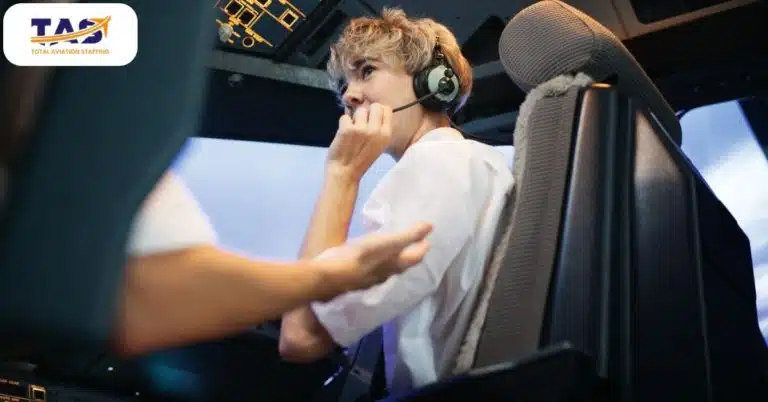
5. Expect to Answer Difficult Behavioral Questions About How You Would Handle Challenging Situations in the Cockpit or on the Ramp
Whether you’re interviewing for a position as a flight attendant or a pilot, you can expect to be asked some challenging questions about how you would handle various situations that might occur during a flight. While it’s impossible to predict exactly what you’ll be asked, there are some common themes that tend to come up in aviation interviews. For example, you might be asked how you would deal with an uncooperative passenger, or what you would do if there was a medical emergency onboard. In addition, you may be asked what steps you would take if the aircraft experienced mechanical problems. While these questions can be difficult to answer, it’s important to remain calm and present your best self during the interview. Remember, the interviewer is simply trying to assess your suitability for the role, and they aren’t looking to trip you up. If you stay calm and answer honestly, you’ll give yourself the best chance of landing the job.

6. Expect Technical Questions About Aircraft Performance, Weight and Balance, Navigation, and Air Traffic Control Procedures
Finally, the interviewer will likely ask you some technical questions about aircraft performance, weight and balance, navigation, and air traffic control procedures. Be sure to brush up on these topics before the interview so that you can answer confidently. In addition to understanding the fundamentals of each subject, it’s also important to have a good working knowledge of the aircraft you’ll be flying. Before the interview, take some time to familiarize yourself with the specific type of aircraft and its features. This will not only help you answer any technical questions that arise, but also demonstrate to the interviewer that you have a good grasp of aviation concepts. By preparing for these various types of questions ahead of time, you will show the interviewer that you are a knowledgeable and experienced aviator who is ready for the next step in your career. Good luck!
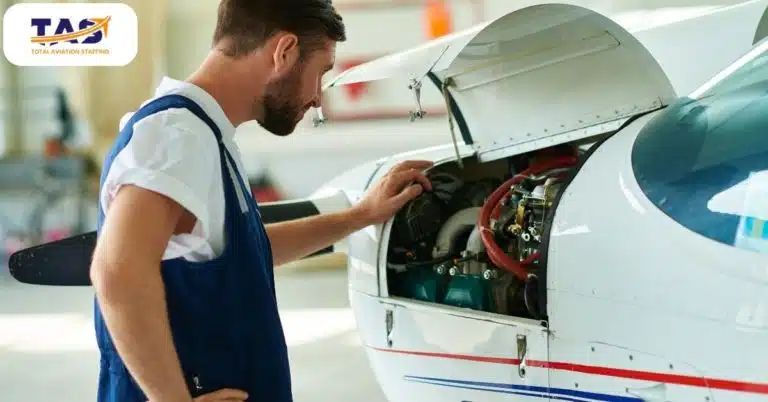
7. Expect Questions About Your Goals and Career Aspirations
The interviewer may also ask about your long-term goals for your flying career. This could include questions such as what type of aircraft you’d like to fly in the future, where you see yourself in five years, or why you want to work for their company. It’s important, to be honest, and candid when answering these questions. If possible, provide concrete examples of how your experience has prepared you for the job, and highlight any unique skills you possess that will prove beneficial to the organization. Additionally, you should also explain what interests you about the role and how it fits into your overall career plans. By showing enthusiasm for the position and providing thoughtful responses to these questions, you’ll demonstrate your commitment and passion for flying professionally.
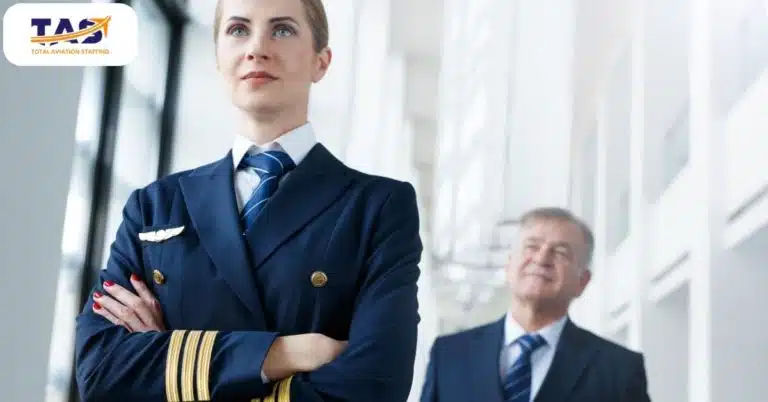
8. Be Prepared for a Simulator Assessment if You Are Applying for a Pilot Position With a Commercial Airline or Helicopter Operator
If you’re applying for a pilot position with a commercial airline or helicopter operator, you should be prepared for a simulator assessment as part of the interview process. Simulator assessments are designed to evaluate a candidate’s flying skills and abilities, as well as their decision-making under pressure. The assessment will likely include a number of different scenarios, such as bad weather landings or engine failures. While it may be daunting, the best way to prepare for a simulator assessment is to practice flying in as many different conditions as possible. This will help you to become familiar with the controls and respond quickly and confidently in the event of an emergency. With some preparation and practice, you can ace your simulator assessment and take one step closer to your dream job as a commercial pilot.
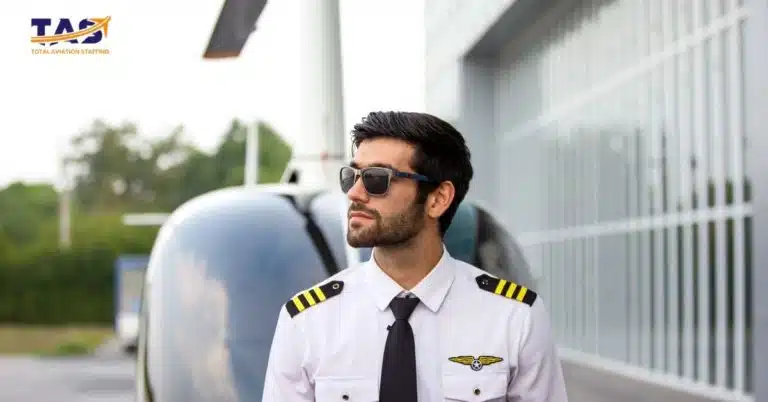
9. Finally, Expect to Thank the Interviewers for Their Time and Consideration After the Interview Is Concluded
At the conclusion of the interview, remember to thank the interviewer for their time and consideration. This is a small gesture that can have a big impact on making you stand out from other candidates. Additionally, if there are multiple interviewers present, make sure to shake each person’s hand before leaving. By showing your appreciation and following up with thank you notes afterward, you’ll demonstrate that you are a mature and professional candidate who deserves to be considered for the position. Best of luck! By preparing for your aviation job interview in advance, you can make sure that you present yourself as a knowledgeable and confident applicant. From researching the company to brushing up on your technical knowledge, this comprehensive guide will help you make a great impression and take one step closer to your dream job as a professional aviator. Good luck!
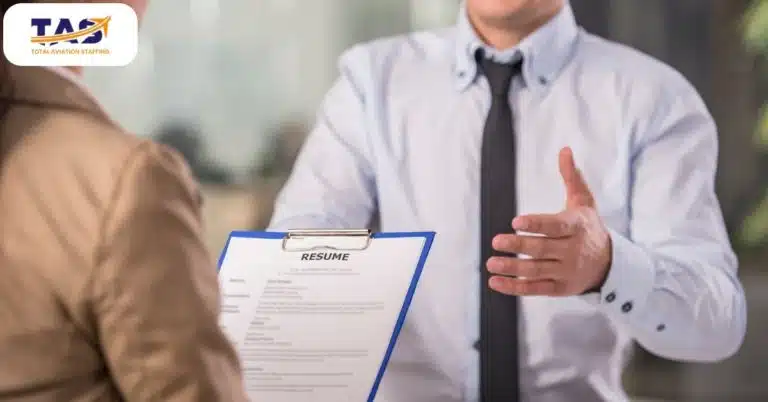
In conclusion
A successful aviation job interview requires preparation and practice. From researching the company to brushing up on your technical knowledge, this comprehensive guide will help you make a great impression and move one step closer to achieving your dream of becoming a professional aviator. With some dedication and hard work, you’ll be sure to impress the hiring team and secure the job you’ve been dreaming of. Best of luck! Be sure to check out our other blog posts on aviation careers, including tips for writing a great aviation resume and how to ace an aviation job interview. Thanks for reading!
